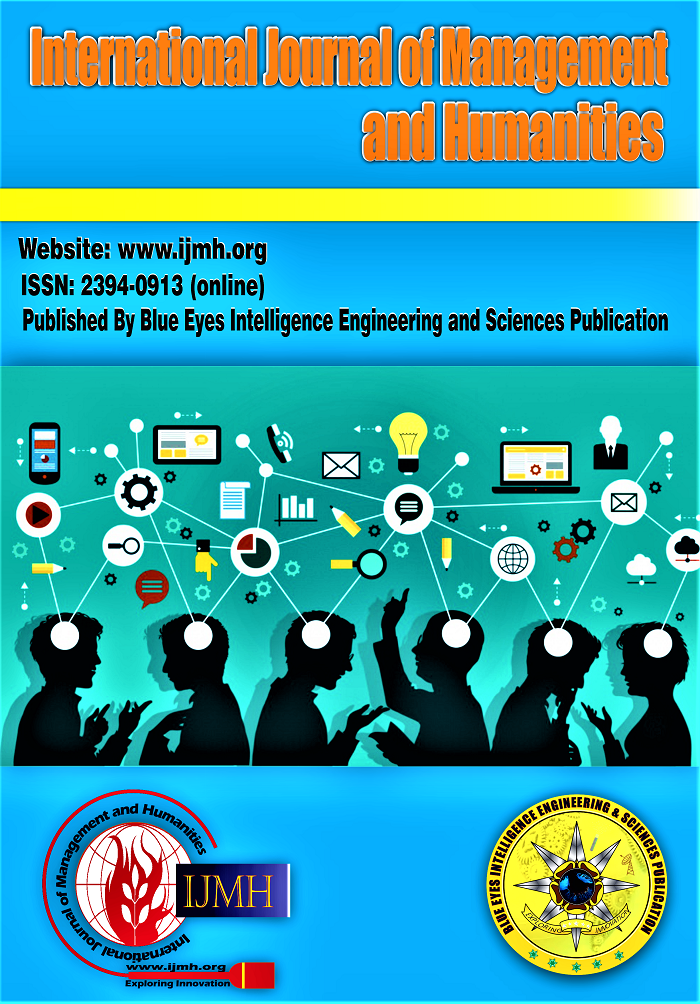Investigating Emotional Intelligence and Employees' Well-Being in an AI-Enhanced Workplace
Main Article Content
Abstract
This study focuses on the connections between employee well-being in AI-enhanced workplaces, the integration of artificial intelligence (AI), and emotional intelligence (EI). Data were collected and analyzed from workers in various industries using quantitative methodologies. Positive connections between EI and AI are seen in the results, indicating possible alignment in AI-driven contexts. The slight negative correlations between AI and well-being indicate intricate connections. While component analysis identifies distinctive EI and AI factors, cluster analysis reveals distinct employee profiles based on EI, AI, and well-being scores. One of the implications is the significance of fostering EI and AI integration in enhancing employee well-being. Future studies may examine these constraints and investigate intervention strategies for more healthful workplaces in the AI era. This research offers insightful information about the intricate dynamics of EI, AI, and well-being, offering guidance for organizational practices and future research endeavors.
Downloads
Article Details
Section
How to Cite
References
Prentice, C., Dominique Lopes, S., & Wang, X. (2020). Emotional intelligence or artificial intelligence– an employee perspective. Journal of Hospitality Marketing & Management, 29(4), 377–403. https://doi.org/10.1080/19368623.2019.1647124 https://doi.org/10.1080/19368623.2019.1647124
Kumar, R. (2014). Impact of Emotional Intelligence on Employees’ Performance: A Study of Employees Working in Himachal Pradesh University Shimla (SSRN Scholarly Paper 2451027). https://doi.org/10.2139/ssrn.2451027 https://doi.org/10.2139/ssrn.2451027
Edward, Y. R., & Purba, K. (2020). The Effect Analysis of Emotional Intelligence and Work Environment on Employee Performance with Organizational Commitment as Intervening Variables in PT Berkat Bima Sentana. Budapest International Research and Critics Institute (BIRCI-Journal): Humanities and Social Sciences, 3(3), 1552–1563. https://doi.org/10.33258/birci.v3i3.1084 https://doi.org/10.33258/birci.v3i3.1084
Chaudhry, A., & Usman, A. (2011). An Investigation of the Relationship between Employees’ Emotional Intelligence and Performance (SSRN Scholarly Paper 2171775). https://papers.ssrn.com/abstract=2171775
Mer, A., & Virdi, A. (2023). Navigating the Paradigm Shift in HRM Practices Through the Lens of Artificial Intelligence: A Post-pandemic Perspective (pp. 123–154). https://doi.org/10.1108/978-1-80382-027-920231007https://doi.org/10.1108/978-1-80382-027-920231007
Jia, N., Luo, X., Fang, Z., & Liao, C. (2023). When and How Artificial Intelligence Augments Employee Creativity. Academy of Management Journal, 67. https://doi.org/10.5465/amj.2022.0426 https://doi.org/10.5465/amj.2022.0426
Kawakami, A., Chowdhary, S., Iqbal, S. T., Liao, Q. V., Olteanu, A., Suh, J., & Saha, K. (2023). Sensing Wellbeing in the Workplace, Why and For Whom? Envisioning Impacts with Organizational Stakeholders. Proceedings of the ACM on Human-Computer Interaction, 7(CSCW2), 1–33. https://doi.org/10.1145/3610207https://doi.org/10.1145/3610207
Vrontis, D., El-Chaarani, H., El Nemar, S., & Dib, H. (2021). The relationship between managers’ emotional intelligence and employees’ performance. J. for International Business and Entrepreneurship Development, 13, 177. https://doi.org/10.1504/JIBED.2021.118270. https://doi.org/10.1504/JIBED.2021.118270
Behbahani, A. A. (2011). A comparative Study of the Relation between Emotional Intelligence and Employee's Performance. Procedia-Social and Behavioral Sciences, 30, 386-389. https://doi.org/10.1016/j.sbspro.2011.10.076
Baggio, B., & Omana, N. (2019). AI and the Agile Workplace. Journal of Systemics, Cybernetics and Informatics, 17(2), 84-91.
Haddon, J. (2018). The impact of employees’ well-being on performance in the workplace. Strategic HR Review, 17(2), 72–75. https://doi.org/10.1108/SHR-01-2018-0009https://doi.org/10.1108/SHR-01-2018-0009
Uslu, O., & Uslu, M. (2019). The Impact of Emotional Intelligence on Employees’ Attitudes. 8, 32–43.
Skakon, J., Nielsen, K., Borg, V., & Guzman, J. (2010). Are leaders’ well-being, behaviours and style associated with the affective well-being of their employees? A systematic review of three decades of research. Work & Stress, 24(2), 107–139. https://doi.org/10.1080/02678373.2010.495262https://doi.org/10.1080/02678373.2010.495262
Jorfi, H., Jorfi, S., & MOGHADAM, Ph. D. (2010). Impact of Emotional Intelligence on Performance of Employees (English version). Postmodern Openings, 4, 63–74. https://doi.org/10.5296/jmr.v4i1.936
Page, K. M., & Vella-Brodrick, D. A. (2009). The ‘What’, ‘Why’ and ‘How’ of Employee Well-Being: A New Model. Social Indicators Research, 90(3), 441–458. https://doi.org/10.1007/s11205-008-9270-3. https://doi.org/10.1007/s11205-008-9270-3
Baksh Baloch, Q., Saleem, M., Zaman, G., & Fida, A. (2014). The Impact of Emotional Intelligence on Employees' Performance. Journal of Managerial Sciences, 8(2).
Koul, S. (2020). Contribution of Artificial Intelligence and Virtual Worlds towards development of Super Intelligent AI Agents. In International Journal of Engineering and Advanced Technology (Vol. 9, Issue 5, pp. 800–809). https://doi.org/10.35940/ijeat.e9923.069520
Emotional Intelligence and Work Performance. (2019). In International Journal of Recent Technology and Engineering (Vol. 8, Issue 2S3, pp. 1658–1664). https://doi.org/10.35940/ijrte.b1301.0782s319
The Need for Integrating Emotional Intelligence as an Essential Skill for Graduates with Special Reference to Employability of Engineering Graduates. (2019). In International Journal of Innovative Technology and Exploring Engineering (Vol. 8, Issue 9S3, pp. 1104–1106). https://doi.org/10.35940/ijitee.i3238.0789s319
Upadhyay, J. P., & Adhikari, P. R. (2021). Reward Management Strategies and Employee Satisfaction in the Colleges of Kathmandu Valley. In Indian Journal of Management and Language (Vol. 1, Issue 2, pp. 52–56). https://doi.org/10.54105/ijml.b2007.101221
Singh, R. K. (2022). Role of Vocational Education and Skill Training to Stimulate Human Development. In Indian Journal of Social Science and Literature (Vol. 2, Issue 1, pp. 31–36). https://doi.org/10.54105/ijssl.a1030.092122





